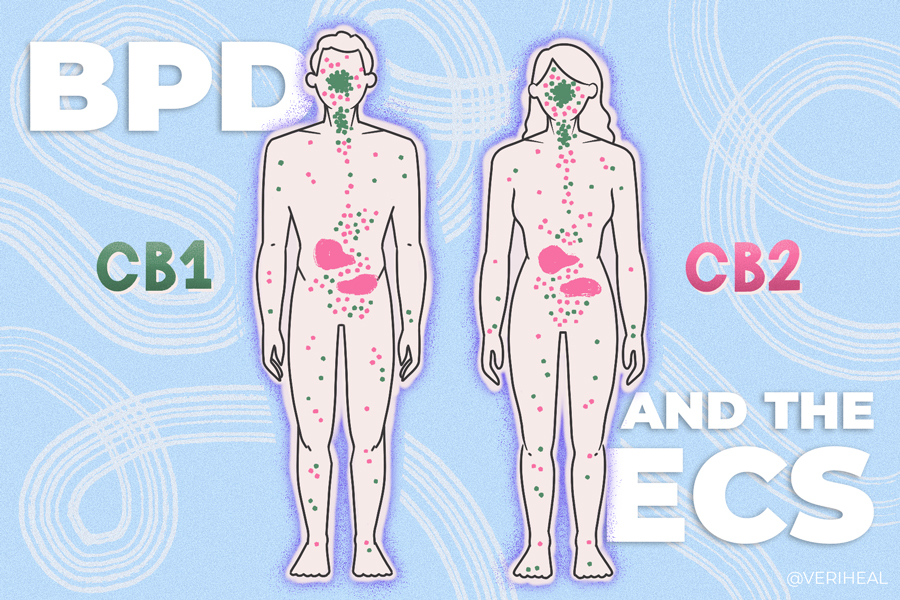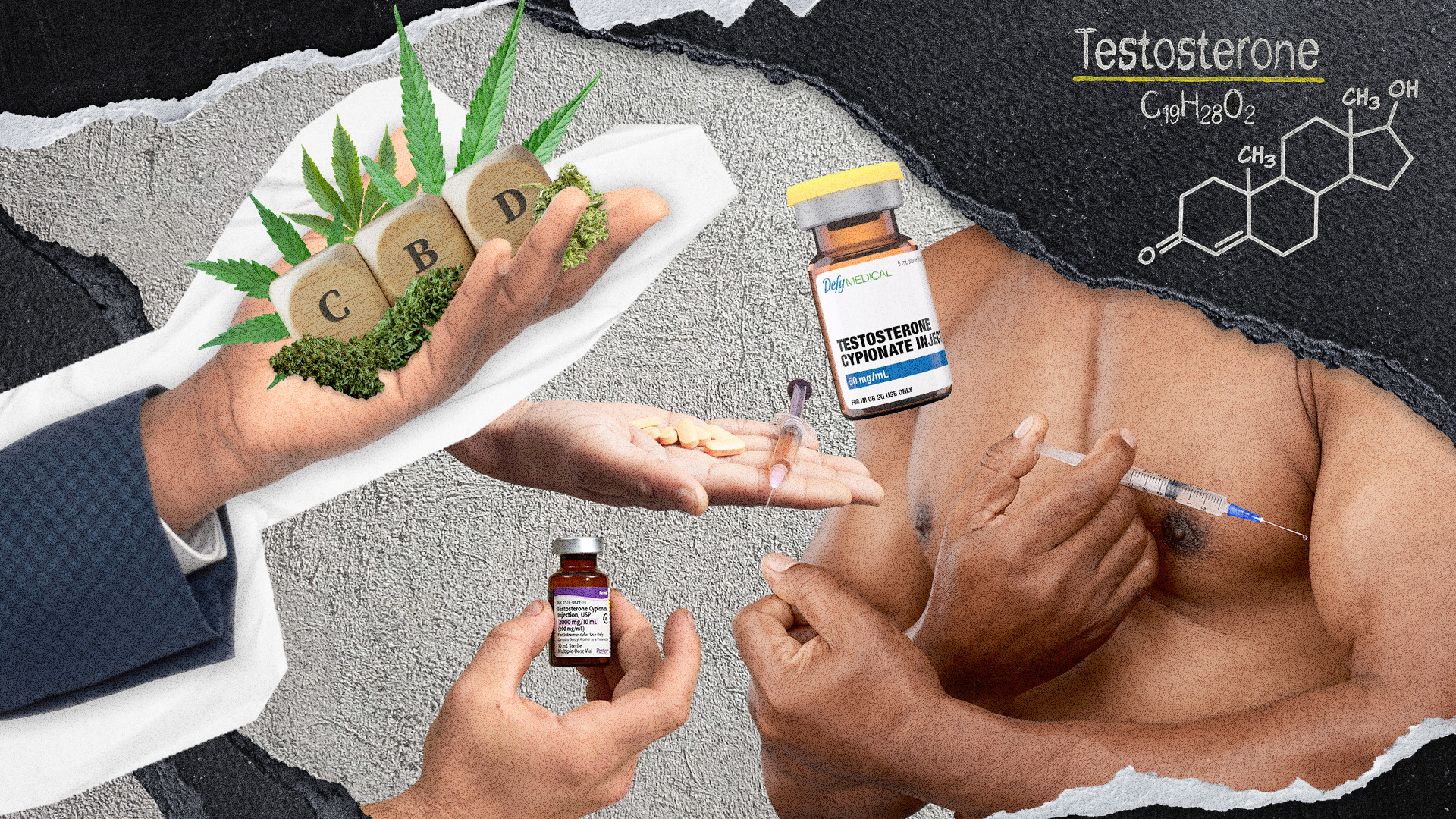Gone are the days when cannabis was just an occasional treat—today, it’s a powerful source of holistic healing. According to a 2021 review published in Current Neuropharmacology, targeting the endocannabinoid system with CBD may offer those affected by borderline personality disorder newfound relief and understanding about managing their condition.
What Is Borderline Personality Disorder?
Borderline personality disorder (BPD) refers to a mental condition that affects how people perceive themselves, often resulting in difficulty managing emotions and relationship problems. It can cause intense fluctuations in mood and turbulent thoughts, feelings, and behaviors.
Although there isn’t an exact number that accurately reflects how many people suffer from BPD, it’s safe to say that the disorder affects millions of American adults. Recent estimates of 1.6% may be on the conservative side—some experts suggest that it’s closer to 6%. That adds up to more than 5 million Americans potentially struggling with BPD. This statistic points out just how important it is for research and treatment strategies around BDP to be a top priority in the years to come.
Those with borderline personality disorder may struggle with the following:
- Maintaining healthy relationships
- Fearing abandonment
- Showing impulsive behavior
- Having frequent self-image issues
The good news is that although BPD can be challenging to live with, it can be managed through therapy, support systems, and assistance from healthcare providers.
A Quick Refresher on the Endocannabinoid System
The endocannabinoid system (ECS) may be the unsung hero of the human body. It is responsible for maintaining balance and regulating different processes, from appetite and fat storage to moods and motivation to memory and cognition.
This unique system works by controlling or modulating the communication between cells by releasing molecules called endocannabinoids, which interact with two receptors: cannabinoid type-1 (CB1) and cannabinoid type-2 (CB2). CB1 receptors are primarily found throughout the brain and nervous system, while CB2 receptors exist throughout the immune system. Once bound to their respective receptor, cannabinoids regulate several biochemical reactions, including cell death, pain regulation, inflammation, neuroplasticity, and so much more.
Brain Areas Affected by Borderline Personality Disorder
Borderline personality disorder, in all its complicated forms, affects many individuals with distress beyond measure. Uncovering the underlying neurobiology of BPD, two major brain areas—the hypothalamus and corticolimbic system—have been identified as significant influences in the treatment of the disorder.
What Is the Hypothalamus?
The hypothalamus is often called the “brain within the brain.” It plays an essential role in many aspects of the nervous system. This almond-shaped structure, located at the base of the brain, is responsible for regulating many physiological processes, such as hunger, thirst, body temperature, and stress.
It also plays a crucial role in controlling emotions and behavior by linking emotions with physiological changes. It’s no overstatement to say that without its influence regulating core body processes, our bodies would be trapped in perpetual chaos.
What Is the Corticolimbic System?
The corticolimbic system is an incredibly complex yet fascinating component of the brain that plays a significant role in determining our behavior and emotions. Referred to as the “emotional circuitry,” this unique-to-mammals network comprises elements from the cerebral cortex and limbic regions, namely the hippocampus, amygdala, thalamus, and cingulate cortex.
Why You Should Get Your Medical Marijuana Card
Veriheal has satisfied millions of patients nationwide by giving them access to these benefits
- Larger purchase limits
- Peace of mind
- Enhanced legal protection
- Access to higher potency strains
- Save up to 25% on cannabis purchases
- Skip the line at the dispensary
Hippocampus
The hippocampus is an essential part of our memory makeup, operating as a gateway between short-term and long-term memories. Not only does it store information, but experts suggest that the hippocampus also enables us to creatively use past experiences to form new ideas.
Amygdala
Referred to as the “brain’s command center” and located in the temporal lobe, the amygdala plays a vital role in detecting and controlling our emotional reactions. Specifically, it is responsible for rapidly processing fear and other reactions in response to physical or other emotionally-charged stimuli. This invaluable piece of hardware alerts us to danger and mobilizes us to defend ourselves from hazards, both real and imagined.
Thalamus
This intriguing part of the human brain plays a crucial role in nervous system function. Located deep within the brain, it serves as a center of sorts, routing and transferring signals from the base of the brain up to the higher-functioning neurons at the very top. Due to its array of neuron pathways that interface with sensory fibers throughout our bodies, it is called a “relay station.” It allows us to process our surroundings effectively and react swiftly to environmental information.
Cingulate Cortex
This brain region lies deep within its structure, nestled below the corpus callosum. It’s been linked to such diverse tasks as multitasking, ignoring distractions, executive functioning, understanding complex language, responding to emotions, and feeling physical pain. The cingulate cortex acts almost like a “governor” of sorts by helping us consider how our current actions may affect us in the future and guiding us toward more sound decisions.
In sync with each other, these brain regions form a sophisticated feedback loop controlled by neurotransmitters that modulate our feelings and moods…and, ultimately, how we behave. Therefore, it should be no surprise that damage to or malfunctioning of any part of the corticolimbic system is associated with problems lasting far beyond physical implications. Psychological symptoms can range from anxiety to altered memory function.
How BPD-Affected Brain Areas Can Be Targeted With Cannabis
In 2020, research published in Psychopharmacology found that high levels of CB1 receptors exist in major brain areas associated with BPD expression. As a result, the exceptional presence of endocannabinoid receptors in these regions provides us with a promising novel option for treatment: cannabinoids like cannabidiol (CBD). Notably, a “treatment ratio of a high level of CBD to a low level of THC” showed the best results.
Considering no pharmacological treatment for borderline personality disorder has achieved consistent, long-term success, the possibility of using CBD for BPD treatment holds much promise for those seeking relief from symptoms associated with this mental health diagnosis.
A Few Final Thoughts
Research like this demonstrates how advances in cannabis research can offer real hope to people suffering from mental health challenges, such as borderline personality disorder. This study provides a unique perspective of research that hasn’t been explored much in the past, focusing on how cannabinoids interact with the endocannabinoid system.
While more research is needed, it’s clear that this new study generates hope for future mental health treatments involving cannabis. For far too long, sufferers of mental disorders like BPD have had no lasting options for treatment. This breakthrough brings us closer than ever to helping thousands of people find a path out of pain, frustration, and widespread despair.
Note: The content on this page is for informational purposes only and is not intended to be professional medical advice. Do not attempt to self-diagnose or prescribe treatment based on the information provided. Always consult a physician before making any decision on the treatment of a medical condition.
Author, Share & Comments
















